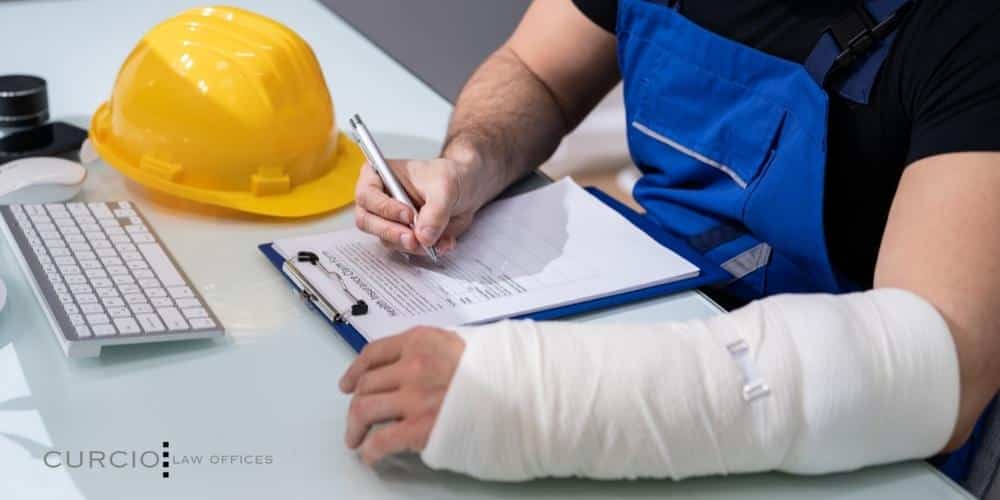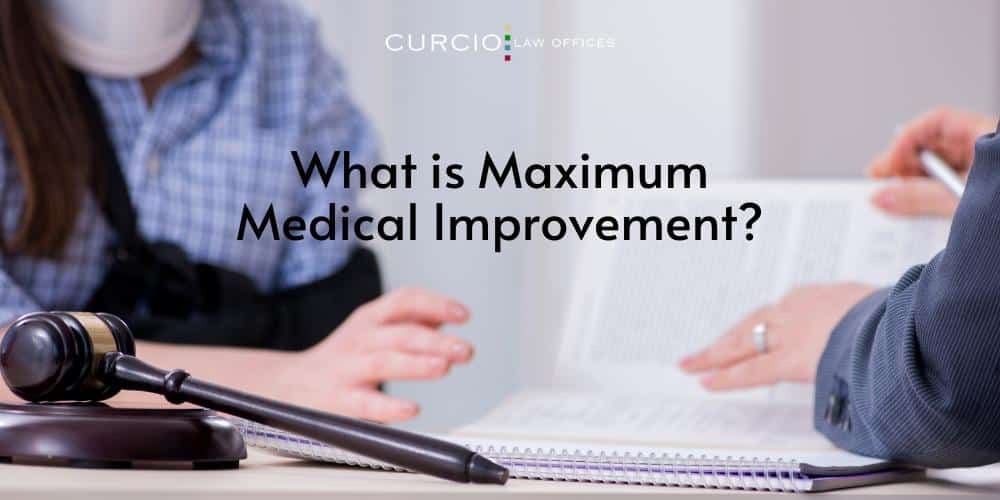At first, the term “maximum medical improvement” sounds like a great thing. Many people understand it to mean that a victim of an injury has fully recovered from that injury and requires no further medical treatment. However, this is not the case. While that does happen in many cases, that is not what the term means. In this blog, we explain the true meaning of maximum medical improvement (MMI) in a personal injury case and how it affects your auto accident or workers compensation claim. Additionally, we’ll give you all the information you need to know about reaching MMI and undergoing an MMI assessment.
The legal team at Curcio & Casciato has more than 50 years of combined experience in handling cases that fall under personal injury law and workers compensation law. If you suffered an accident due to poor working conditions or someone’s negligent actions, you need the strongest legal representation on your side. Call an experienced workers compensation lawyer at our Chicago law firm at 312-321-1111 today. We offer a free consultation to all new clients.
What is Maximum Medical Improvement?
Maximum medical improvement is a term used in a workers compensation claim to describe how an injured worker has recovered to the fullest possible extent. If you have reached maximum medical improvement, you are basically in a stable condition and you don’t require further medical treatment. However, it does not mean that you have returned to the same state of health prior to the injury. It also does not mean that you won’t require more medical treatment in the future.
Many attorneys apply MMI in a variety of personal injury cases, including catastrophic injuries, motor vehicle accidents, workplace accidents, construction accidents, and more. We take into account several factors such as the extent of the injury, the severity of the injury, and the length of time to reach maximum medical improvement. These three factors primarily impact your case’s value, as well as your awarded damages and disability benefits.
What Happens After MMI?
Many injured workers wonder what will happen to their medical benefits after they reach MMI. Once the victim reaches this point, their treating physician usually recommends a Functional Capacity Evaluation (FCE). This independent medical examination determines the capacity of the victim to perform certain work-related activities within their line of work. It compares their health and functionality to the demands of their job. These evaluations are often beneficial to those injured on the job, or those who suffered an injury or illness outside of work and wish to return to work.
In recent years, FCEs have begun to not only measure victims’ abilities to perform the physical demands of their jobs, but also the cognitive demands of their jobs. This is extremely important for victims of concussions or traumatic brain injuries. For injuries or conditions that are past normal healing, doctors assign an impairment rating. Then, the Permanent Disability Rating System determines how much compensation you get for permanent disabilities.
Types of Disability Benefits in Workers Comp Cases
Depending on the type of workers comp insurance company and the results of the FCE, injured workers may receive permanent disability benefits, which are basically wage loss benefits. There are multiple types of disability benefits that workers can receive, including:
- Total Temporary Disability Benefits are reserved for those who are completely disabled, but only for a short amount of time.
- Temporary Partial Disability Benefits are reserved for those who have suffered temporary, partial impairment. So a treating physician may approve part-time, restricted work throughout an injured worker’s healing process.
- Permanent Total Disability Benefits are reserved for those who suffered permanent impairment which prevents them from working ever again.
- Permanent Partial Disability Benefits are reserved for those who are permanently, partially disabled. So an injured employee can still work, but may have permanent restrictions on the job duties they can do moving forward.
How to Calculate Auto Accident Maximum Medical Improvement
The Illinois Workers’ Compensation Act fortunately provides injured individuals with temporary total disability (TTD) payments immediately. These benefits cover two-thirds of the average weekly wage of the employee, as well as 100% of their medical care. If a worker has permanent injuries but can still return to work, they receive permanent partial disability (PPD) benefits. Additionally, those with permanent injuries who cannot return to work receive permanent total disability (PTD) benefits.
The Illinois Workers’ Compensation Act also assigns values for both the loss of a body part and the permanent loss of use of a body part. We call this the “schedule of injuries.” It is expressed in the number of weeks of PPD a worker can receive. Let’s say you suffered the partial loss of a body part. We calculate your PPD rate by measuring your percentage loss of that body part, then multiply that by the number of weeks the body part is worth. Then, multiply that by your PPD rate.

Who Determines if I Have Reached MMI?
A state certified physician must be the one to determine if you have reached MMI. Workers comp insurance carriers will then request an independent medical examination to confirm that the injured worker has reached MMI. The insurance company will then file an MMI report and send it to the worker, the doctor, and the employer. If you have hired legal representation to assist you with your workers compensation claim, then they should receive this MMI report too.
What Determines Maximum Medical Improvement After a Car Accident in Illinois?
When your doctor determines that you reached MMI after your work related injury or personal injury, it’s important to understand exactly what this means.
Below, we include the possible meanings of maximum medical improvement (MMI) as it applies to a workers comp claim:
- The victim’s injuries have fully healed, and they may return to work.
- All injuries sustained are not completely healed, but the doctor determines that they will not make further improvement in their medical condition. If the victim’s job is within their physical and cognitive limitations, they may return to work.
- The injuries are not healed, but the doctor determines that they will not improve further. The victim’s injuries receive an impairment rating, and the patient is eligible for Impairment Income Benefits (IIB).
The impairment rating assigned by your doctor denotes the degree of permanent damage to your body, as well as your eligibility for IIB. The best way to achieve full compensation for your injuries is to hire an experienced Chicago workers compensation attorney. We can make sure that your employer’s insurance carrier properly compensates you for lost wages and medical bills, especially if your injury happened at work.
How Long Does it Take to Reach MMI?
The amount of time it will take to reach maximum medical improvement (MMI) is something that heavily depends on the person, the severity of their injuries, and their medical needs. Additionally, secondary conditions that develop during the recovery period could lead to a longer recovery period. However, prioritizing your health is the most important part of the healing process.
Below, we provide recommendations that not only lead to a speedier recovery, but also show that you take your recovery seriously:
- Coordinate communications between your doctors, your attorney, and other involved parties. In order to ensure that all parties receive the appropriate workers compensation paperwork in a timely manner, we recommend having a Chicago personal injury attorney to help with this part.
- Keep all doctors’ appointments and follow their instructions as best you can. If you deviate from the recommendations from your doctor, there is a fair chance that your workers compensation claim will be negatively impacted.
- Remain open to negotiations. Having your attorney work with your employer and insurance carrier is crucial. Many workers compensation cases resolve successfully through peaceful negotiation. Experienced attorneys at Curcio & Casciato will work to maximize your recovery, while also keeping you informed about the process.

Call Chicago Personal Injury Lawyers at Curcio & Casciato Today
If you have suffered work injuries or car accident injuries and you’re struggling to recover a fair settlement from your employer’s insurance carrier, you need an experienced workers compensation lawyer to fight for you. At Curcio & Casciato, our knowledge and experience work not only for us, but also for our clients. We tailor legal strategies to your specific circumstances, and carefully review the facts of your case. That way, all injured workers can receive the compensation they deserve for medical expenses and lost wages.
We are ready to start an attorney client relationship with you today. For a free initial consultation, call our Chicago law firm at 312-321-1111 today.



